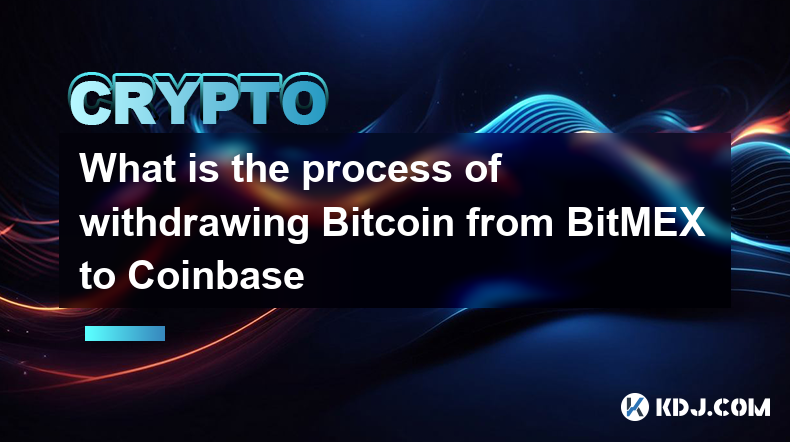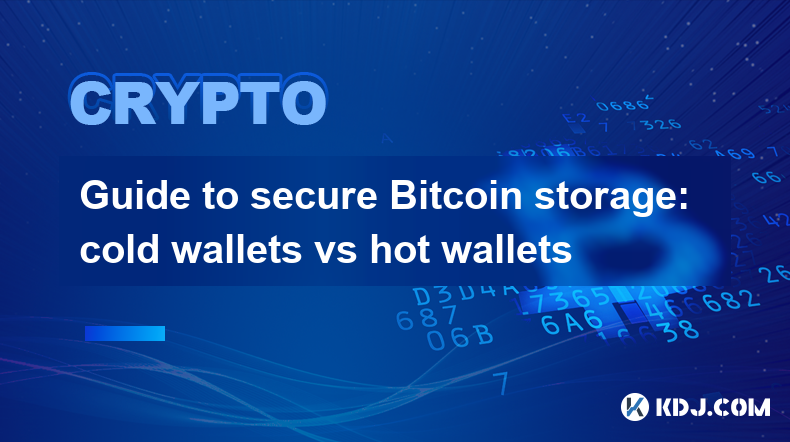-
 Bitcoin
Bitcoin $80,573.2637
-2.11% -
 Ethereum
Ethereum $1,543.7425
-5.87% -
 Tether USDt
Tether USDt $0.9993
-0.03% -
 XRP
XRP $1.9998
-1.09% -
 BNB
BNB $579.4823
0.04% -
 USDC
USDC $0.9999
-0.01% -
 Solana
Solana $115.2563
-1.78% -
 Dogecoin
Dogecoin $0.1571
-0.49% -
 TRON
TRON $0.2360
-1.34% -
 Cardano
Cardano $0.6242
0.20% -
 UNUS SED LEO
UNUS SED LEO $9.4144
0.31% -
 Chainlink
Chainlink $12.4218
-0.15% -
 Avalanche
Avalanche $18.6206
1.95% -
 Toncoin
Toncoin $2.9432
-4.54% -
 Hedera
Hedera $0.1720
1.79% -
 Stellar
Stellar $0.2332
-1.86% -
 Sui
Sui $2.1599
-1.75% -
 Shiba Inu
Shiba Inu $0.0...01190
0.51% -
 MANTRA
MANTRA $6.4630
-5.02% -
 Bitcoin Cash
Bitcoin Cash $295.6172
-1.59% -
 Litecoin
Litecoin $75.0786
-0.21% -
 Polkadot
Polkadot $3.5329
-1.57% -
 Dai
Dai $0.9997
-0.03% -
 Bitget Token
Bitget Token $4.2415
-2.14% -
 Ethena USDe
Ethena USDe $0.9985
-0.04% -
 Hyperliquid
Hyperliquid $14.6899
5.78% -
 Pi
Pi $0.5955
0.25% -
 Monero
Monero $202.1118
-0.81% -
 Uniswap
Uniswap $5.1340
-3.26% -
 OKB
OKB $53.6888
0.48%
What is the process of withdrawing Bitcoin from BitMEX to Coinbase
To withdraw Bitcoin from BitMEX to Coinbase, ensure both accounts are verified, account for withdrawal fees, and double-check the Bitcoin address for a secure transfer.
Apr 05, 2025 at 04:42 am

Withdrawing Bitcoin from BitMEX to Coinbase involves several steps that require attention to detail to ensure the process is completed successfully. Before you start, make sure you have an active account on both platforms and that you have completed any necessary identity verification processes. It's also important to understand the fees associated with the withdrawal and any potential delays in processing. In this guide, we will walk through the process step-by-step, highlighting important considerations and best practices to ensure your Bitcoin is transferred safely and efficiently.
Preparing for Withdrawal
Before initiating a withdrawal from BitMEX to Coinbase, there are a few preparations you should make. First, ensure that your BitMEX account has sufficient Bitcoin to cover the amount you wish to withdraw plus any withdrawal fees. BitMEX charges a fee for Bitcoin withdrawals, which can vary depending on network conditions. Next, verify that your Coinbase account is fully set up and that you have completed the necessary KYC (Know Your Customer) verification. This is crucial because Coinbase will not allow deposits without proper verification. Lastly, make sure you have the correct Bitcoin address from Coinbase to use for the withdrawal.
Initiating the Withdrawal on BitMEX
To start the withdrawal process, log into your BitMEX account and navigate to the 'Account' section. From there, select 'Withdraw' and choose Bitcoin as the cryptocurrency you want to withdraw. You will be prompted to enter the amount of Bitcoin you wish to withdraw. Remember to account for the withdrawal fee, which will be displayed on the withdrawal page. Next, you need to enter the Bitcoin address from your Coinbase account. Double-check this address for accuracy, as sending Bitcoin to the wrong address can result in permanent loss of funds. After entering the correct address and amount, submit the withdrawal request.
Confirming the Withdrawal
After submitting your withdrawal request on BitMEX, you will need to confirm the transaction. BitMEX may require additional verification steps, such as entering a two-factor authentication code. This is a security measure to protect your account and ensure that only authorized withdrawals are processed. Once you have completed the verification, the withdrawal request will be processed by BitMEX. The processing time can vary depending on network congestion and other factors, but typically, it should not take more than a few hours. You can check the status of your withdrawal in the 'Withdrawals' section of your BitMEX account.
Receiving Bitcoin on Coinbase
Once the withdrawal from BitMEX is processed, the Bitcoin will be sent to the address you provided, which should be your Coinbase Bitcoin address. Coinbase will then process the incoming transaction. The time it takes for the Bitcoin to appear in your Coinbase account can vary, but it typically takes between one and six confirmations on the Bitcoin network. You can check the status of the incoming transaction on Coinbase's transaction page. Once the transaction is confirmed, the Bitcoin will be credited to your Coinbase account, and you will be able to use it for trading, selling, or transferring to another wallet.
Verifying the Transaction
After the Bitcoin has been credited to your Coinbase account, it's important to verify the transaction details. Check the amount of Bitcoin received and ensure it matches the amount you withdrew from BitMEX, minus any fees. You can also use a blockchain explorer to track the transaction and confirm that it was processed correctly. This step is crucial for maintaining accurate records and ensuring that your funds are secure. If there are any discrepancies or issues, contact Coinbase's customer support immediately for assistance.
Best Practices for Secure Withdrawals
To ensure the security of your Bitcoin withdrawals, follow these best practices:
- Use Strong Passwords: Ensure that both your BitMEX and Coinbase accounts are protected with strong, unique passwords.
- Enable Two-Factor Authentication (2FA): Both platforms support 2FA, which adds an extra layer of security to your accounts.
- Verify Addresses: Always double-check the Bitcoin address before initiating a withdrawal. A single mistake can result in irreversible loss of funds.
- Monitor Transaction Fees: Keep an eye on the withdrawal fees and network congestion to minimize costs and delays.
- Keep Records: Maintain detailed records of your transactions, including withdrawal requests, fees, and confirmation times.
Potential Issues and Solutions
While withdrawing Bitcoin from BitMEX to Coinbase is generally straightforward, you may encounter some issues. Here are common problems and their solutions:
- Delayed Transactions: If your withdrawal is taking longer than expected, check the Bitcoin network's congestion level. You can also contact BitMEX support for an update on the transaction status.
- Incorrect Address: If you accidentally entered the wrong address, contact BitMEX immediately. While there's no guarantee of recovering the funds, quick action can sometimes help.
- Insufficient Funds: Ensure you have enough Bitcoin to cover the withdrawal amount and fees. If not, you'll need to add more funds to your BitMEX account.
- Verification Issues: If you encounter problems with verification on either platform, ensure all your KYC information is up-to-date and contact customer support for assistance.
Understanding Withdrawal Fees
Withdrawal fees are an important consideration when transferring Bitcoin from BitMEX to Coinbase. BitMEX charges a fee for Bitcoin withdrawals, which is typically based on the current network conditions. This fee is deducted from the amount you are withdrawing, so make sure to account for it when calculating the total amount to withdraw. Coinbase does not charge a fee for receiving Bitcoin, but you may incur fees if you decide to sell or transfer the Bitcoin to another wallet. Always check the fee structure on both platforms before initiating a withdrawal to avoid any surprises.
Security Considerations
Security is paramount when dealing with cryptocurrency transactions. Here are some additional security tips to keep in mind:
- Use Hardware Wallets: For long-term storage, consider transferring your Bitcoin to a hardware wallet for added security.
- Beware of Phishing: Always access BitMEX and Coinbase through their official websites and be cautious of phishing attempts.
- Regularly Update Software: Keep your computer and mobile devices updated with the latest security patches to protect against vulnerabilities.
- Monitor Account Activity: Regularly check your account activity on both platforms to detect any unauthorized transactions quickly.
Final Steps After Withdrawal
Once your Bitcoin has been successfully transferred from BitMEX to Coinbase, there are a few final steps you should take. First, ensure that the Bitcoin is securely stored in your Coinbase account. If you plan to hold the Bitcoin for an extended period, consider transferring it to a more secure wallet, such as a hardware wallet. Second, review your transaction history on both platforms to ensure everything is recorded accurately. Finally, consider the next steps for your Bitcoin, whether it's holding, trading, or selling, and plan accordingly.
Common Questions Related to Withdrawing Bitcoin from BitMEX to Coinbase
Q: How long does it take to withdraw Bitcoin from BitMEX to Coinbase?
A: The time it takes to withdraw Bitcoin from BitMEX to Coinbase can vary depending on network congestion and other factors. Typically, it takes a few hours for the withdrawal to be processed by BitMEX, and then an additional one to six confirmations on the Bitcoin network for the funds to appear in your Coinbase account.
Q: What are the fees associated with withdrawing Bitcoin from BitMEX to Coinbase?
A: BitMEX charges a withdrawal fee for Bitcoin, which varies based on network conditions. Coinbase does not charge a fee for receiving Bitcoin, but you may incur fees if you decide to sell or transfer the Bitcoin to another wallet. Always check the fee structure on both platforms before initiating a withdrawal.
Q: How can I ensure the security of my Bitcoin during the withdrawal process?
A: To ensure the security of your Bitcoin during the withdrawal process, use strong passwords, enable two-factor authentication on both BitMEX and Coinbase, double-check the Bitcoin address before initiating the withdrawal, and monitor transaction fees and network congestion. Additionally, consider using a hardware wallet for long-term storage and be cautious of phishing attempts.
Q: What should I do if I encounter issues during the withdrawal process?
A: If you encounter issues during the withdrawal process, first check the status of the transaction on both BitMEX and Coinbase. If the transaction is delayed, monitor the Bitcoin network's congestion level. If you entered the wrong address, contact BitMEX immediately. For insufficient funds, add more Bitcoin to your BitMEX account. If you face verification issues, ensure your KYC information is up-to-date and contact customer support for assistance.
Q: Can I withdraw Bitcoin from BitMEX to Coinbase without completing KYC verification?
A: No, you cannot withdraw Bitcoin from BitMEX to Coinbase without completing KYC verification. Both platforms require users to complete identity verification before allowing withdrawals and deposits. Ensure your KYC information is up-to-date on both platforms to avoid any issues during the withdrawal process.
Disclaimer:info@kdj.com
The information provided is not trading advice. kdj.com does not assume any responsibility for any investments made based on the information provided in this article. Cryptocurrencies are highly volatile and it is highly recommended that you invest with caution after thorough research!
If you believe that the content used on this website infringes your copyright, please contact us immediately (info@kdj.com) and we will delete it promptly.
- Fluidkey, a privacy-focused project, is tackling one of the most discussed about concerns about transaction transparency on Ethereum Virtual Machines (EVM) chains
- 2025-04-11 11:05:12
- New Ukrainian commemorative coin "National Guard of Ukraine" put into circulation
- 2025-04-11 11:05:12
- Last Thursday, US-based asset manager Canary Capital filed an application with the Securities and Exchange Commission (SEC)
- 2025-04-11 11:00:12
- Last Thursday, US-based asset manager Canary Capital filed an application with the Securities and Exchange Commission (SEC)
- 2025-04-11 11:00:12
- An interview with MANTRA CEO John Patrick Mullin
- 2025-04-11 10:55:13
- Council bosses explain why Bramley-Moore Dock parking restrictions have been suspended
- 2025-04-11 10:55:13
Related knowledge

What is Bitcoin halving? Analysis of the impact on prices
Apr 09,2025 at 01:14pm
Bitcoin halving is a pivotal event in the cryptocurrency world that occurs approximately every four years, or every 210,000 blocks. The event is designed to reduce the rate at which new bitcoins are generated, thereby controlling inflation and increasing scarcity over time. During a halving, the reward that miners receive for successfully adding a block...

What to do if Bitcoin is stolen? Security protection and recovery possibilities
Apr 09,2025 at 03:42pm
If your Bitcoin is stolen, it can be a distressing experience, but there are steps you can take to protect your remaining assets and attempt to recover your lost funds. This article will guide you through the process of securing your Bitcoin and exploring recovery possibilities. Immediate Actions After Bitcoin TheftThe moment you realize your Bitcoin ha...

How to avoid Bitcoin investment scams? Common scams revealed
Apr 10,2025 at 05:14pm
Introduction to Bitcoin Investment ScamsBitcoin and other cryptocurrencies have become increasingly popular investment options, attracting both seasoned investors and newcomers alike. However, with the rise in popularity, there has also been a surge in Bitcoin investment scams. These scams can range from Ponzi schemes to fake exchanges and fraudulent in...

Guide to secure Bitcoin storage: cold wallets vs hot wallets
Apr 11,2025 at 08:42am
Guide to Secure Bitcoin Storage: Cold Wallets vs Hot Wallets When it comes to storing Bitcoin, security is paramount. The choice between cold wallets and hot wallets can significantly impact the safety of your digital assets. This guide delves into the differences between these two types of wallets, their respective advantages and disadvantages, and how...

What is Bitcoin fork? Differences between BTC, BCH, and BSV
Apr 10,2025 at 02:21am
A Bitcoin fork refers to a change in the underlying protocol of the Bitcoin blockchain, which results in a divergence into two separate versions of the blockchain. This can happen as a result of a disagreement within the community about the direction of the cryptocurrency, or to introduce new features or improvements. There are two main types of forks: ...

The role of Bitcoin wallets: public keys, private keys and security analysis
Apr 09,2025 at 03:00am
Bitcoin wallets play a crucial role in the world of cryptocurrency, serving as the gateway to securely store, send, and receive Bitcoin. Understanding the intricacies of Bitcoin wallets, particularly the concepts of public keys, private keys, and security analysis, is essential for anyone looking to navigate the cryptocurrency landscape safely and effec...

What is Bitcoin halving? Analysis of the impact on prices
Apr 09,2025 at 01:14pm
Bitcoin halving is a pivotal event in the cryptocurrency world that occurs approximately every four years, or every 210,000 blocks. The event is designed to reduce the rate at which new bitcoins are generated, thereby controlling inflation and increasing scarcity over time. During a halving, the reward that miners receive for successfully adding a block...

What to do if Bitcoin is stolen? Security protection and recovery possibilities
Apr 09,2025 at 03:42pm
If your Bitcoin is stolen, it can be a distressing experience, but there are steps you can take to protect your remaining assets and attempt to recover your lost funds. This article will guide you through the process of securing your Bitcoin and exploring recovery possibilities. Immediate Actions After Bitcoin TheftThe moment you realize your Bitcoin ha...

How to avoid Bitcoin investment scams? Common scams revealed
Apr 10,2025 at 05:14pm
Introduction to Bitcoin Investment ScamsBitcoin and other cryptocurrencies have become increasingly popular investment options, attracting both seasoned investors and newcomers alike. However, with the rise in popularity, there has also been a surge in Bitcoin investment scams. These scams can range from Ponzi schemes to fake exchanges and fraudulent in...

Guide to secure Bitcoin storage: cold wallets vs hot wallets
Apr 11,2025 at 08:42am
Guide to Secure Bitcoin Storage: Cold Wallets vs Hot Wallets When it comes to storing Bitcoin, security is paramount. The choice between cold wallets and hot wallets can significantly impact the safety of your digital assets. This guide delves into the differences between these two types of wallets, their respective advantages and disadvantages, and how...

What is Bitcoin fork? Differences between BTC, BCH, and BSV
Apr 10,2025 at 02:21am
A Bitcoin fork refers to a change in the underlying protocol of the Bitcoin blockchain, which results in a divergence into two separate versions of the blockchain. This can happen as a result of a disagreement within the community about the direction of the cryptocurrency, or to introduce new features or improvements. There are two main types of forks: ...

The role of Bitcoin wallets: public keys, private keys and security analysis
Apr 09,2025 at 03:00am
Bitcoin wallets play a crucial role in the world of cryptocurrency, serving as the gateway to securely store, send, and receive Bitcoin. Understanding the intricacies of Bitcoin wallets, particularly the concepts of public keys, private keys, and security analysis, is essential for anyone looking to navigate the cryptocurrency landscape safely and effec...
See all articles




















![🐢Super Mario World Koopa Troopa 100% 96⭐️ + Coin [Ao Vivo] 🐢Super Mario World Koopa Troopa 100% 96⭐️ + Coin [Ao Vivo]](/uploads/2025/04/10/cryptocurrencies-news/videos/super-mario-koopa-troopa-coin-ao-vivo/image-1.webp)


































































